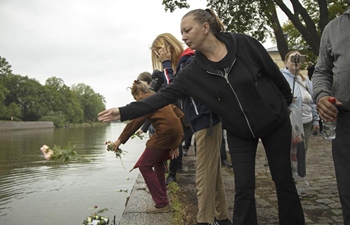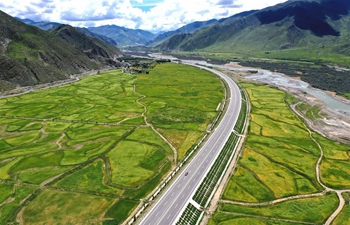JERUSALEM, Aug. 19 (Xinhua) -- Israeli researchers have proven that ancient oceans from billions of years ago were no hotter than today, contrary to a common theory, the Weizmann Institute of Science (WIS) in central Israel reported Monday.
According to the WIS scientists, these findings may provide clues to everything from the conditions under which primitive life forms evolved to the geological history of seawater chemistry.
Some geoscientists think the first ocean was extremely hot (at least 70 degrees Celsius), while others believe it was closer to today's levels, around 15 degrees.
Both sides rely on changes in the oxygen isotope composition of minerals precipitated out of seawater (for example, found in the carbonate minerals in limestones) - but reached different conclusions.
It has been difficult to determine whether the isotope composition trend is because of a cooling of the seawater or an actual change in the isotopic composition of the water.
The Israeli team calibrated the temperature-dependent oxygen isotope fractionation between iron oxides and aqueous solutions and constructed an oxygen isotope record in marine iron oxides covering the past 2 billion years.
To investigate, the researchers turned to tiny ovoidal grains (ooids) composed of fine concentric layers of ancient iron oxides.
To measure the oxygen isotope ratios in the tiny iron oxide samples, they created a database of isotope compositions in different ooids.
The ooids were collected from dozens of sites worldwide, representing different geological periods - the oldest being around two billion years old.
The findings suggest that a change in the isotope composition of the water, rather than its cooling, underlies the observed geological trend.
The researchers describe the database as a sort of oceanic time capsule and hope to use it to create a sort of isotopic picture of the ocean in the early days, as well as the changes it has undergone since.

















